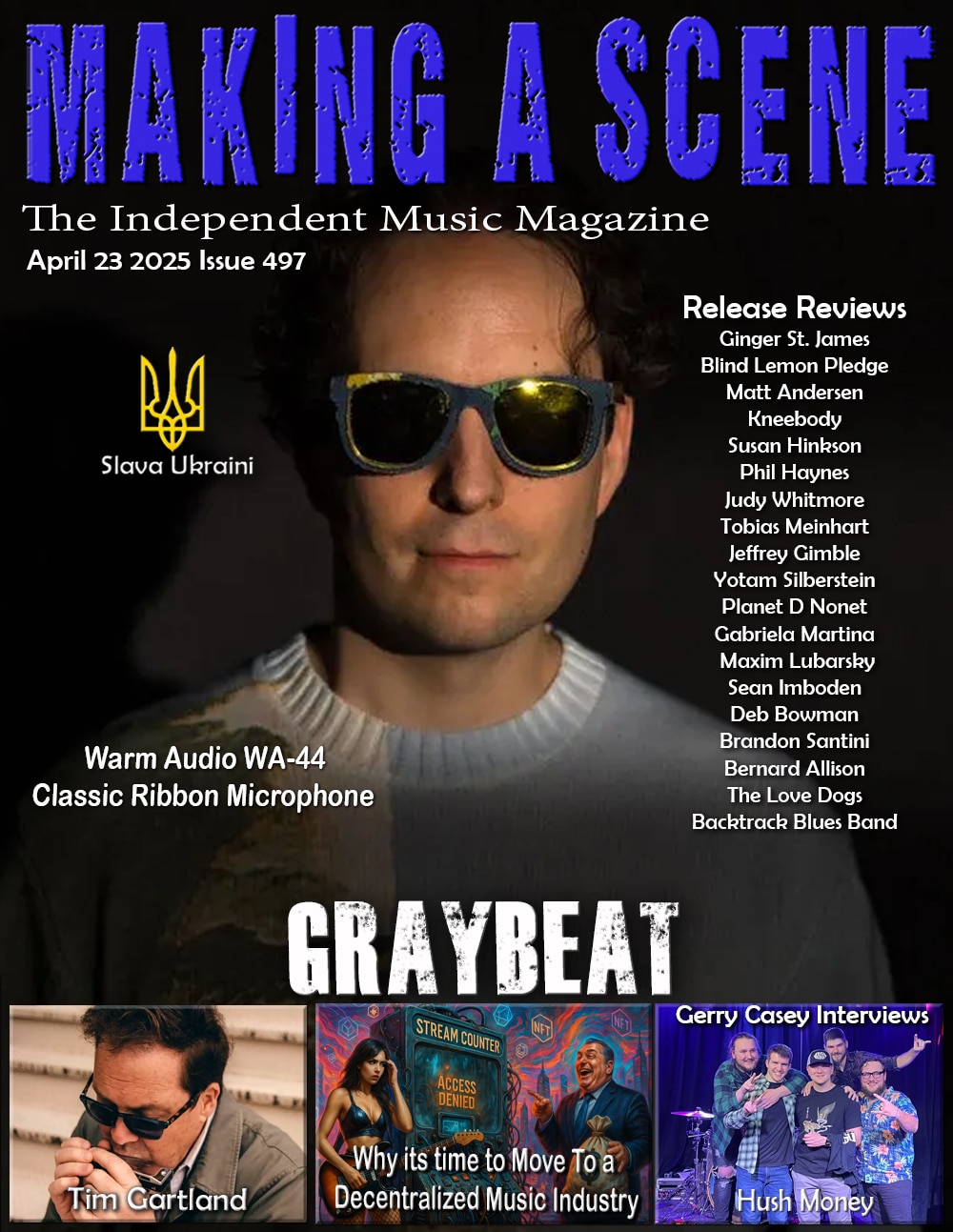Eric Bibb – ‘Blues People’
Eric Bibb’s latest CD, Blues People, is an extraordinary musical documentary. Certainly, it sounds marvelous with Bibb’s usual mix of country blues, folk, soul and gospel. But it goes far beyond that as Bibb delves into the history of African-Americans from the end of slavery to the present day, with a strong focus on the nonviolent, peaceful human rights message of Dr. Martin Luther King. It is a remarkable achievement.
Prejudice and racism limits us all, regardless of color or race. Bibb understands that blues music can be a force to bring about positive change in the world, and to promote understanding of a part of history that has not been adequately explored. Here, he does it in a way that entertains as it educates, and he is joined by a host of talented friends.
To prepare the listener for the musical journey, Bibb begins with the autobiographical “Silver Spoon,” about his experience establishing
himself as a musician on the road. He is joined on this one by Popa Chubby on guitar. The next song continues the traveling theme, but this time Bibb focuses around the late ’20s or early ’30s and the traveler is one of the many hobos headed for California, “Driftin’ Door to Door.”
“God’s Mojo” balances despair and hope – trying and failing and still finding hope to make it through. “Turner Station” is a jaunty tune, also about trying to make a change and reach a new goal, with the mention of “conking” hair setting it in the period before the Civil Rights movement of the ’60s. “Pink Dream Cadillac” brings the saga of hope and dreaming into the ’50s or possibly early ’60s. The next song, “Chocolate Man,” was written by Guy Davis, who performs on it as well, and it is a sheer delight, capturing the swaggering, humorous straight blues of singers like Blind Willie McTell and Willie Dixon.
Things then turn somber for the chilling and heart-wrenching “Rosewood,” based on the real story of the hateful burning of an entire African-American community in Florida by a white mob in 1923. This is the sort of history that has been covered up, and only by forcing us to look at the past can Bibb and others help ensure a better future.
Here the emphasis moves to the Civil Rights Movement and puts the spotlight on King’s message. Songs like Rev. Gary Davis’ “I Heard the Angels Singin’” with the marvelous Blind Boys of Alabama, and “Needed Time,” also featuring the Blind Boys of Alabama along with Taj Mahal, lay the foundation of faith and the place of the church in giving the people who fought for human rights their strength. Then “Dream Catchers,” with Harrison Kennedy and Ruthie Foster, “Chain Reaction,” featuring producer Glen Scott on vocals, and “Home,” with Andre De Lange, call on the new generation to continue the fight until King’s dream is fully realized at last. “Out Walkin’” and “Remember the Ones,” recall the leaders of the fight.
The last song, “Where Do We Go?” adds a bit of perspective by asking the question of where we go when all of life is through. It’s thought-provoking, and although Bibb mentions singing together “hand in hand on higher ground, ” he still leaves it with a question.
Bibb is masterful at promoting social justice without being too preachy, at providing moments of exhilaration as well as contemplation and deep emotion with fine musicianship and finesse. Blues People is a must-have for blues people everywhere.
Discover more from Making A Scene!
Subscribe to get the latest posts sent to your email.















































